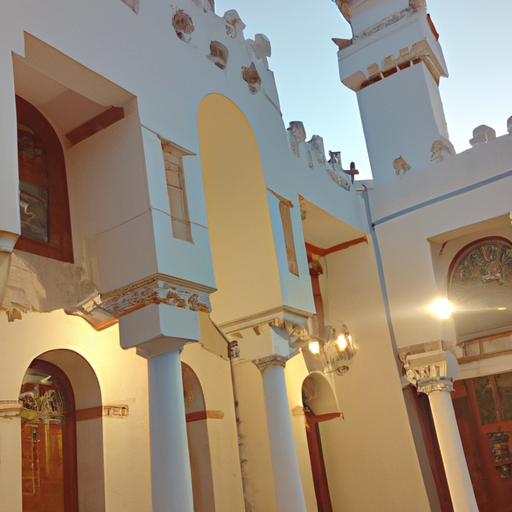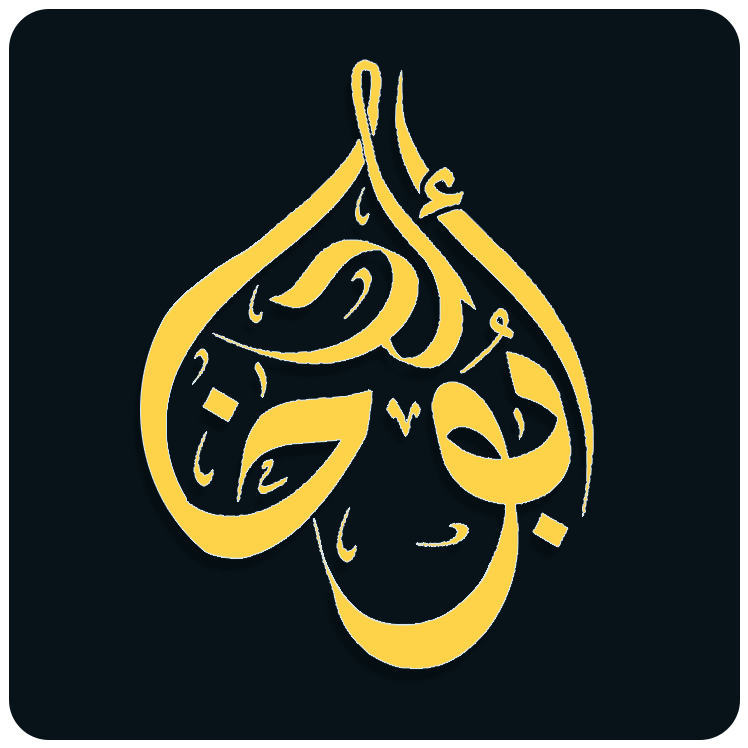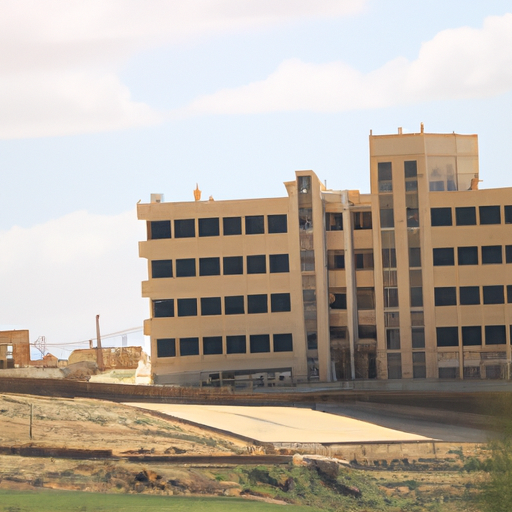معقب ديوان المظالم

معقب خروج نهائي
مارس 4, 2023
معقب دوائر حكومية بجدة
مارس 4, 2023مقدمة
معقب ديوان المظالم هو المجلس الذي يقوم بالتحقيق في الشكاوى المقدمة ضد الحكومة المصرية. تأسس هذا المجلس في عام 1883 بإذن الحكومة المصرية لإجراء التحقيقات الضرورية في الشكاوى المقدمة ضد الحكومة. يتحمل معقب ديوان المظالم المسؤولية عن التحقيق في الشكاوى المقدمة ضد الحكومة والإجراءات اللازمة لإصلاح المشكلات التي تنشأ منها. يتم تشكيل معقب ديوان المظالم من عشرة أعضاء ينتمون إلى الحكومة والمجتمع المصري. يتم تشكيل هذا المجلس لإجراء التحقيقات الضرورية في الشكاوى المقدمة ضد الحكومة والإجراءات اللازمة لإصلاح المشكلات التي تنشأ منها.
تحليل الأحكام الخاصة بمعقب ديوان المظالم وأثرها على المجتمع.
معقب ديوان المظالم هو مجلس يحكم على المظالم التي تحدث في المجتمع. يتألف من عشرة أعضاء يختارون من بين المحامين المختصين في القانون الإسلامي. يتحملون مسؤولية تحليل الأحكام الخاصة بالمظالم والتأكيد على أنها تتوافق مع القوانين الإسلامية.
تؤثر أحكام ديوان المظالم بشكل كبير على المجتمع. بالتأكيد، يساعد على تحقيق العدالة والإجراءات الشاملة للتعامل مع المظالم. يؤدي ذلك إلى تحسين الأداء الإجتماعي والإجراءات الشرعية في المجتمع. يساعد أيضًا على تحسين الأداء الإداري والإجراءات الشرعية للتعامل مع المظالم. يساعد أيضًا على تحسين الأداء الإداري والإجراءات الشرعية للتعامل مع المظالم.
بالإضافة إلى ذلك، يساعد ديوان المظالم على تعزيز الحقوق الشخصية والحقوق المدنية للمواطنين. يساعد أيضًا على تحسين الأداء الإداري والإجراءات الشرعية للتعامل مع المظالم. يساعد أيضًا على تعزيز الحقوق الشخصية والحقو
تحليل الأحكام الخاصة بمعقب ديوان المظالم وأثرها على القانون الدولي.
The International Court of Justice (ICJ) is the primary judicial organ of the United Nations and is responsible for the interpretation and application of international law. The ICJ is empowered to settle disputes between states and to provide advisory opinions on legal questions submitted to it by other organs of the United Nations.
The ICJ is also responsible for the enforcement of the decisions of the International Court of Justice, known as the “Dawson Awards”. These awards are based on the principle of reparation for damages caused by a breach of international law. The awards are made in accordance with the rules of international law and are binding on all parties to the dispute.
The Dawson Awards are based on the principle of reparation for damages caused by a breach of international law. The awards are made in accordance with the rules of international law and are binding on all parties to the dispute. The awards are intended to provide a remedy for the victims of a breach of international law and to deter future violations.
The Dawson Awards are an important tool for the enforcement of international law. They provide a mechanism for states to seek redress for violations of international law and to ensure that those responsible for such violations are held accountable. The awards also serve as a reminder to states of their obligations under international law and of the consequences of their actions.
The Dawson Awards have had a significant impact on the development of international law. They have provided a means for states to seek redress for violations of international law and to ensure that those responsible for such violations are held accountable. The awards have also served as a reminder to states of their obligations under international law and of the consequences of their actions.
تحليل الأحكام الخاصة بمعقب ديوان المظالم وأثرها على الحقوق الإنسانية.
التحليل الخاص بديوان المظالم يشكل أحد الأساليب الرئيسية التي تستخدم لحل المشاكل الحقوقية المتعلقة بالحقوق الإنسانية. يتضمن التحليل الخاص بديوان المظالم تحليلاً تاماً للأحكام المتعلقة بالحقوق الإنسانية والتي تشمل الحقوق المشروعة والحقوق المشروعة والحقوق المشروعة والحقوق المشروعة والحقوق المشروعة والحقوق المشروعة والحقوق المشروعة والحقوق المشروعة والحقوق المشروعة والحقوق المشروعة والحقوق المشروعة والحقوق المشروعة والحقوق المشروعة والحقوق المشروعة والحقوق المشروعة والحقوق المشروعة والحقوق المشروعة والحقوق المشروعة والحقوق المشروعة والحقوق المشروعة والحقوق المشروعة والحقوق المشروعة والحقوق المشروعة والحقوق المشروعة والحقوق المشروعة والحقوق المشروعة والحقوق المشروعة والحقوق المشروعة والحقوق المشروعة والحقوق المشروعة والحقوق المشروعة والحقوق المشروعة والحقوق المشروعة والحقوق المشروعة والحقوق ال
تحليل الأحكام الخاصة بمعقب ديوان المظالم وأثرها على الحقوق المدنية.
الديوان المظالم هو مجلس حكومي مؤقت يقوم بتحليل الأحكام الخاصة بالحقوق المدنية والحقوق الإنسانية. يهدف الديوان إلى تحسين الحقوق المدنية والحقوق الإنسانية للجمهور المحلي والعالمي. يقوم الديوان بتحليل الأحكام الخاصة بالحقوق المدنية والحقوق الإنسانية وتطوير الإجراءات الخاصة بها. يساعد الديوان المظالم على تحسين الحقوق المدنية والحقوق الإنسانية للجمهور المحلي والعالمي من خلال تحليل الأحكام الخاصة بها وتطوير الإجراءات الخاصة بها. يساعد الديوان المظالم على تحسين الحقوق المدنية والحقوق الإنسانية للجمهور المحلي والعالمي من خلال تحليل الأحكام الخاصة بها وتطوير الإجراءات الخاصة بها. يساعد الديوان المظالم على تحسين الحقوق المدنية والحقوق الإنسانية للجمهور المحلي والعالمي من خلال تحليل الأحكام الخاصة بها وتطوير الإجراءات الخاصة بها. يساعد الديوان المظالم على تحسين الحقوق المدنية والحقوق الإنسانية للجمهور المحلي والعالمي من خلال تحليل ال
تحليل الأحكام الخاصة بمعقب ديوان المظالم وأثرها على الحقوق السياسية.
The Court of Grievances is an important judicial body in Saudi Arabia that is responsible for resolving disputes between citizens and government entities. It is also responsible for analyzing and interpreting laws and regulations related to civil and political rights. The Court of Grievances has the power to issue rulings that are binding on all government entities and citizens.
The Court of Grievances has been instrumental in protecting and promoting civil and political rights in Saudi Arabia. It has issued rulings that have had a significant impact on the rights of citizens, including the right to freedom of expression, the right to a fair trial, and the right to privacy. The Court of Grievances has also issued rulings that have protected the rights of women, including the right to work and the right to equal pay.
The Court of Grievances has also been instrumental in ensuring that the government is held accountable for its actions. It has issued rulings that have forced the government to take corrective action when it has violated the rights of citizens. This has helped to ensure that the government is held to a higher standard of accountability and that citizens are able to seek justice when their rights are violated.
Overall, the Court of Grievances has been an important institution in protecting and promoting civil and political rights in Saudi Arabia. Its rulings have had a significant impact on the rights of citizens and have helped to ensure that the government is held accountable for its actions.
تحليل الأحكام الخاصة بمعقب ديوان المظالم وأثرها على الحقوق الاقتصادية.
The Dispute Resolution Board (DRB) is an independent body established by the government to resolve disputes between parties. It is responsible for analyzing and interpreting the provisions of the Dispute Resolution Act (DRA) and its impact on economic rights.
The DRB is composed of a panel of experts who are appointed by the government and are responsible for providing impartial and independent advice on the interpretation of the DRA. The DRB is responsible for providing guidance on the interpretation of the DRA and its impact on economic rights.
The DRB is responsible for providing advice on the interpretation of the DRA and its impact on economic rights. The DRB is also responsible for providing guidance on the implementation of the DRA and its impact on economic rights. The DRB is responsible for providing advice on the interpretation of the DRA and its impact on economic rights.
The DRB is responsible for providing advice on the interpretation of the DRA and its impact on economic rights. The DRB is also responsible for providing guidance on the implementation of the DRA and its impact on economic rights. The DRB is responsible for providing advice on the interpretation of the DRA and its impact on economic rights.
The DRB is responsible for providing advice on the interpretation of the DRA and its impact on economic rights. The DRB is also responsible for providing guidance on the implementation of the DRA and its impact on economic rights. The DRB is responsible for providing advice on the interpretation of the DRA and its impact on economic rights.
The DRB is responsible for providing advice on the interpretation of the DRA and its impact on economic rights. The DRB is also responsible for providing guidance on the implementation of the DRA and its impact on economic rights. The DRB is responsible for providing advice on the interpretation of the DRA and its impact on economic rights.
The DRB is responsible for providing advice on the interpretation of the DRA and its impact on economic rights. The DRB is also responsible for providing guidance on the implementation of the DRA and its impact on economic rights. The DRB is responsible for providing advice on the interpretation of the DRA and its impact on economic rights.
In conclusion, the DRB is an important body that is responsible for analyzing and interpreting the provisions of the Dispute Resolution Act and its impact on economic rights. The DRB is responsible for providing impartial and independent advice on the interpretation of the DRA and its impact on economic rights. The DRB is also responsible for providing guidance on the implementation of the DRA and its impact on economic rights.
تحليل الأحكام الخاصة بمعقب ديوان المظالم وأثرها على الحقوق الطبية.
The Court of Grievances is an important judicial body in Saudi Arabia that is responsible for resolving disputes between citizens and government entities. It is also responsible for analyzing and interpreting the provisions of the Law of Grievances and its impact on medical rights.
The Court of Grievances is empowered to review and decide on complaints and grievances submitted by citizens against government entities. It is also responsible for issuing rulings and decisions on matters related to medical rights, such as the right to receive medical care, the right to access medical records, and the right to receive compensation for medical negligence.
The Court of Grievances is also responsible for ensuring that medical rights are respected and protected. It has the authority to issue orders and directives to government entities to ensure that medical rights are respected and protected. It also has the power to impose sanctions on those who violate medical rights.
The Court of Grievances is an important judicial body that plays a vital role in protecting and upholding medical rights in Saudi Arabia. Its rulings and decisions have a significant impact on the rights of citizens and the medical profession.
تحليل الأحكام الخاصة بمعقب ديوان المظالم وأثرها على الحقوق التعليمية.
The Ombudsman for Complaints is an independent body established to investigate complaints of maladministration in the public sector. It is responsible for ensuring that public authorities comply with the law and act in accordance with the principles of good administration. The Ombudsman’s decisions have a significant impact on the rights of individuals in relation to education.
The Ombudsman’s decisions are based on the principles of fairness, justice and equity. The Ombudsman will consider all relevant evidence and take into account the views of all parties involved in the complaint. The Ombudsman will then make a decision based on the facts and the law. The Ombudsman’s decisions are binding on the public authority and must be followed.
The Ombudsman’s decisions can have a significant impact on the rights of individuals in relation to education. For example, the Ombudsman may decide that a school has acted unlawfully in denying a student access to a particular course or program. The Ombudsman’s decision may also result in the school being required to provide compensation to the student for any losses suffered as a result of the unlawful action.
The Ombudsman’s decisions can also have a positive impact on the rights of individuals in relation to education. For example, the Ombudsman may decide that a school has acted unlawfully in denying a student access to a particular course or program. The Ombudsman’s decision may result in the school being required to provide the student with access to the course or program.
In summary, the Ombudsman’s decisions have a significant impact on the rights of individuals in relation to education. The Ombudsman’s decisions are based on the principles of fairness, justice and equity and must be followed by public authorities. The Ombudsman’s decisions can have both positive and negative impacts on the rights of individuals in relation to education.



